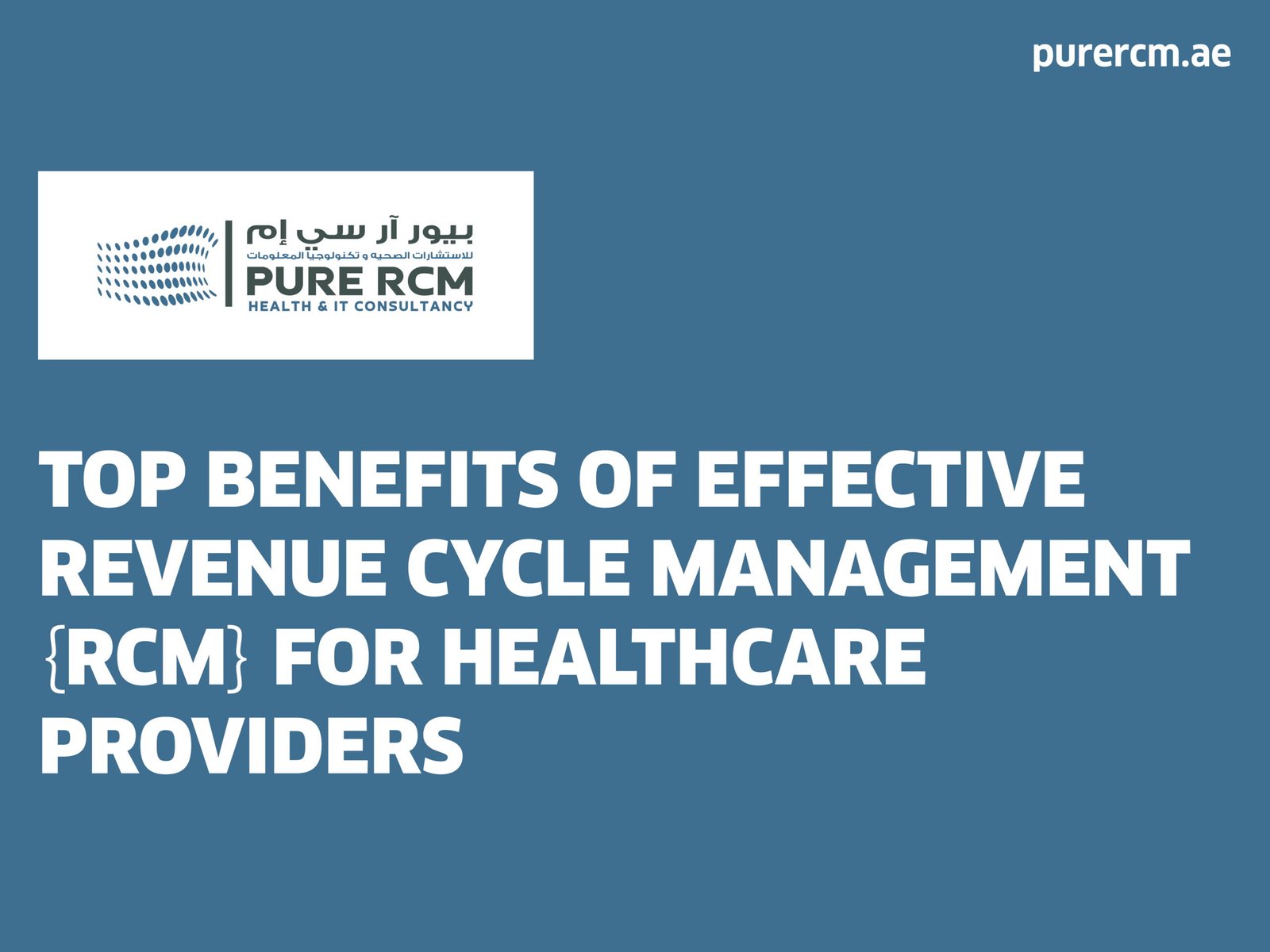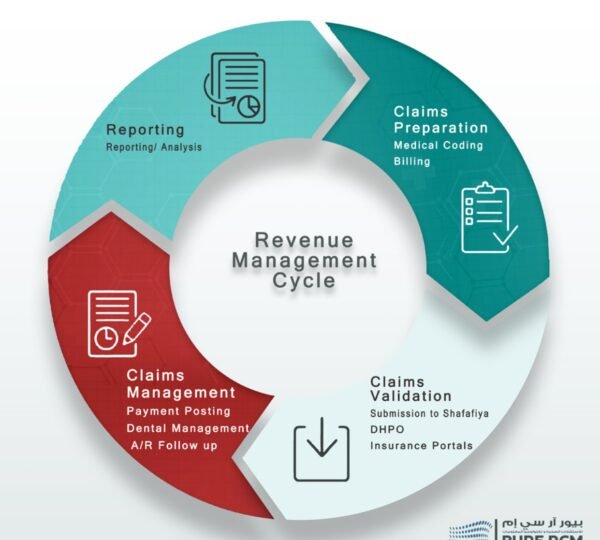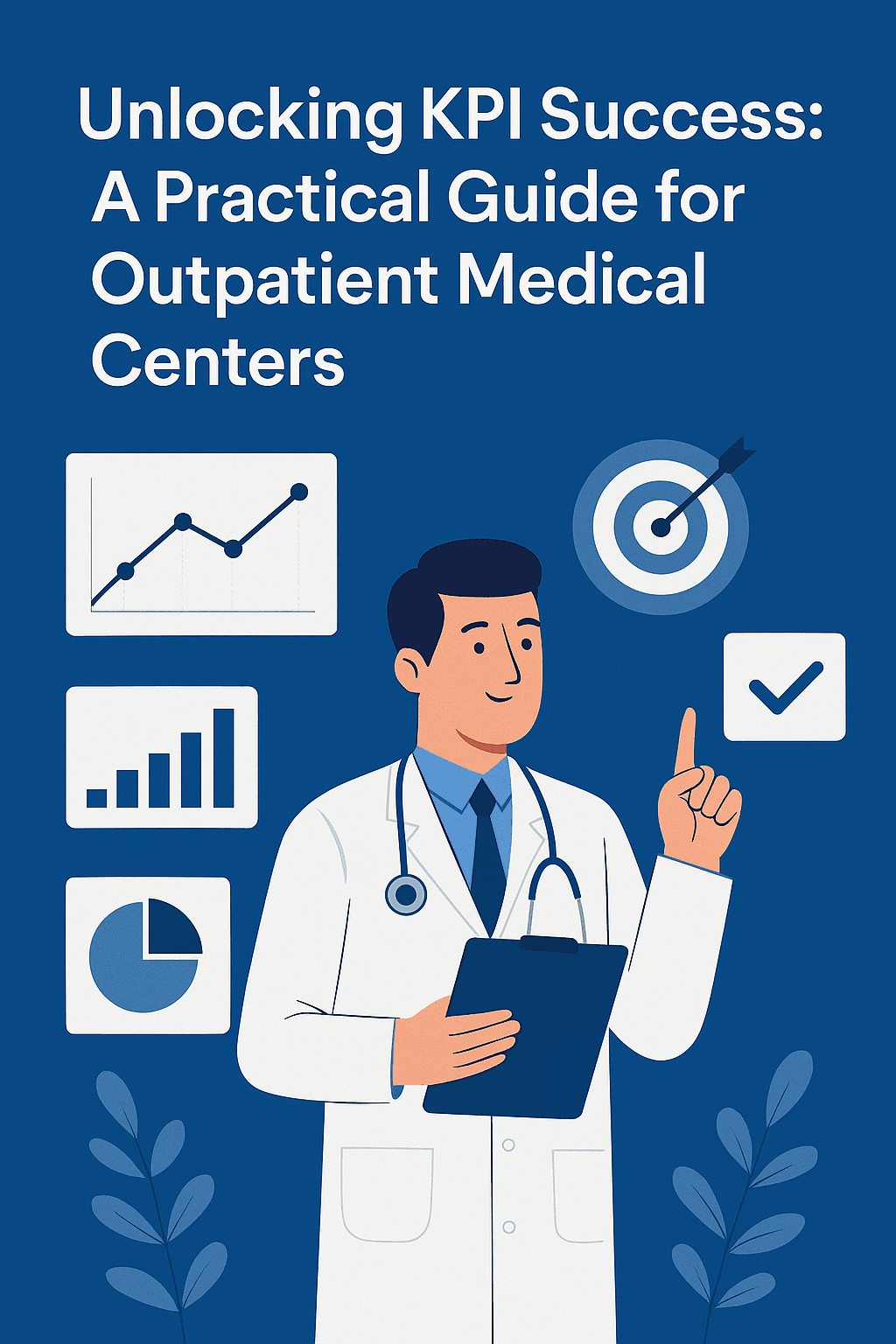
Top Benefits of Effective Revenue Cycle Management (RCM) for Healthcare Providers
Revenue Cycle Management (RCM) is a crucial aspect of the healthcare industry, serving as the backbone of financial operations in healthcare organizations. Effective RCM systems are not just about managing billing and collections; they encompass a comprehensive approach to managing the entire financial process, from patient registration and appointment scheduling to the final payment of a balance. In this blog, we will delve into the top benefits of implementing a robust RCM system, with a special focus on how Pure RCM can revolutionize healthcare financial operations.
1. Improved Cash Flow
One of the most significant benefits of an effective RCM system is the improvement in cash flow. Cash flow is the lifeblood of any organization, and in healthcare, timely revenue is critical for sustaining operations, paying staff, and investing in new technologies and services.
Streamlined Billing Processes
Effective RCM systems streamline the billing process, reducing the time between service delivery and payment. Automated billing and coding reduce errors, ensuring that claims are submitted correctly the first time. This reduces the need for rework and speeds up the payment cycle.
Faster Claims Processing
With automated claims processing, healthcare providers can significantly reduce the turnaround time for claims. This means quicker reimbursement from insurance companies and patients, which translates to a more consistent and predictable cash flow.
Reduced Accounts Receivable
By effectively managing the revenue cycle, healthcare providers can reduce the amount of money tied up in accounts receivable. An optimized RCM system ensures that bills are paid on time, reducing the days in accounts receivable (AR) and improving liquidity.

2. Reduction in Claim Denials
Claim denials can be a significant drain on healthcare resources, both in terms of time and money. An effective RCM system can help reduce the rate of claim denials, thereby increasing the overall revenue.
Error Reduction
Automated RCM systems reduce the likelihood of human errors in coding and billing. Errors in these areas are a common cause of claim denials. By ensuring that claims are accurate and complete before submission, RCM systems can significantly lower the denial rate.
Real-Time Eligibility Verification
One common reason for claim denials is issues with patient eligibility. Effective RCM systems include real-time eligibility verification, ensuring that services are covered under the patient’s insurance plan before they are provided. This pre-emptive approach can prevent many denials from occurring.
Efficient Denial Management
When denials do occur, a robust RCM system helps manage and resolve them quickly. Denial management tools within an RCM system can track the reasons for denials, analyze trends, and implement corrective actions to prevent future denials.
3. Enhanced Compliance
Compliance with healthcare regulations is non-negotiable, and failure to comply can result in severe penalties. An effective RCM system helps ensure that healthcare providers adhere to all regulatory requirements.
Regulatory Updates
Healthcare regulations are constantly evolving. RCM systems stay up-to-date with the latest changes in billing codes, insurance requirements, and other regulations. This ensures that healthcare providers remain compliant with all current laws and guidelines.
Accurate Documentation
Proper documentation is essential for compliance. RCM systems ensure that all necessary documentation is accurately completed and securely stored. This includes patient information, treatment details, and billing records. Accurate documentation not only supports compliance but also provides a clear record in case of audits.
Audit Trails
Effective RCM systems create detailed audit trails, recording every action taken in the billing process. This transparency is crucial for demonstrating compliance during audits and investigations.
4. Improved Patient Satisfaction
Patient satisfaction is an important metric for healthcare providers. An effective RCM system can enhance the patient experience in several ways.
Transparent Billing
Patients appreciate clear and accurate billing. An RCM system provides detailed and transparent billing statements, helping patients understand their financial responsibilities. This transparency reduces confusion and enhances trust.
Simplified Payment Processes
Effective RCM systems offer multiple payment options, making it easier for patients to pay their bills. Online payment portals, payment plans, and automated payment reminders are some of the features that can improve the patient payment experience.
Efficient Communication
Clear communication about billing and insurance matters can significantly improve patient satisfaction. RCM systems facilitate efficient communication between healthcare providers and patients, ensuring that patients receive timely updates and explanations about their bills.
5. Operational Efficiency
An effective RCM system streamlines administrative processes, leading to greater operational efficiency within healthcare organizations.
Integrated Systems
RCM systems integrate with other healthcare systems, such as Electronic Health Records (EHR) and practice management software. This integration ensures seamless data flow between different departments, reducing manual data entry and the risk of errors.
Resource Optimization
By automating routine tasks such as billing, coding, and claims processing, RCM systems free up staff to focus on more critical tasks. This optimizes the use of resources and improves overall productivity.
Data Analytics
Effective RCM systems provide robust data analytics tools. These tools help healthcare providers analyze financial performance, identify trends, and make data-driven decisions to improve revenue and efficiency.
6. Enhanced Financial Planning and Forecasting
Financial planning and forecasting are critical for the long-term success of healthcare organizations. An effective RCM system provides the data and insights needed for accurate financial planning.
Accurate Revenue Projections
RCM systems provide detailed reports on revenue trends, helping healthcare providers make accurate revenue projections. This information is essential for budgeting and financial planning.
Cost Management
By providing insights into the cost of services and reimbursement rates, RCM systems help healthcare providers manage costs more effectively. This ensures that services are priced appropriately and that financial resources are used efficiently.
Strategic Decision Making
With comprehensive financial data at their fingertips, healthcare providers can make strategic decisions about expanding services, investing in new technologies, and optimizing operations.
Conclusion
Implementing a robust Revenue Cycle Management (RCM) system is essential for healthcare providers aiming to improve financial performance and operational efficiency. From improving cash flow and reducing claim denials to enhancing compliance and patient satisfaction, the benefits of an effective RCM system are manifold. Pure RCM offers a comprehensive solution that addresses all aspects of the revenue cycle, empowering healthcare providers to focus on what they do best – delivering quality patient care.
By leveraging the power of advanced RCM systems, healthcare providers can navigate the complexities of billing, coding, and compliance with ease, ensuring a healthier bottom line and a more efficient, patient-centered practice. Explore the transformative benefits of Pure RCM and take your healthcare organization to new heights of financial and operational success.
For more information on how Pure RCM can benefit your healthcare organization, contact us



